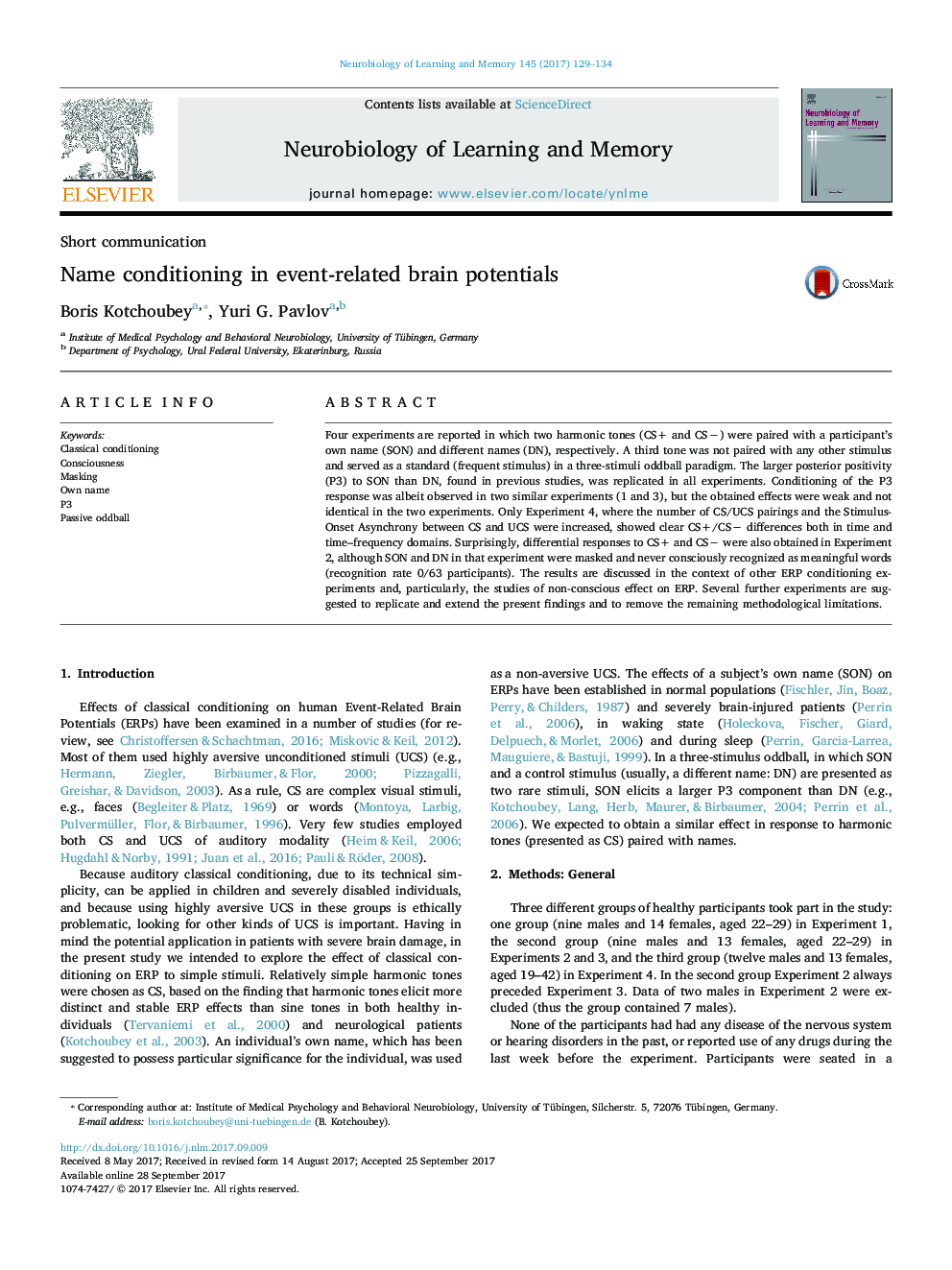| Article ID | Journal | Published Year | Pages | File Type |
|---|---|---|---|---|
| 5043095 | Neurobiology of Learning and Memory | 2017 | 6 Pages |
â¢Event-related potentials can show classical conditioning using a subject's own name as UCS.â¢Conditional effects are rather weak indicating low motivational power of the own name.â¢Conditional effects can be observed even in the absence of conscious recognition of the own name.
Four experiments are reported in which two harmonic tones (CS+ and CSâ) were paired with a participant's own name (SON) and different names (DN), respectively. A third tone was not paired with any other stimulus and served as a standard (frequent stimulus) in a three-stimuli oddball paradigm. The larger posterior positivity (P3) to SON than DN, found in previous studies, was replicated in all experiments. Conditioning of the P3 response was albeit observed in two similar experiments (1 and 3), but the obtained effects were weak and not identical in the two experiments. Only Experiment 4, where the number of CS/UCS pairings and the Stimulus-Onset Asynchrony between CS and UCS were increased, showed clear CS+/CSâ differences both in time and time-frequency domains. Surprisingly, differential responses to CS+ and CSâ were also obtained in Experiment 2, although SON and DN in that experiment were masked and never consciously recognized as meaningful words (recognition rate 0/63 participants). The results are discussed in the context of other ERP conditioning experiments and, particularly, the studies of non-conscious effect on ERP. Several further experiments are suggested to replicate and extend the present findings and to remove the remaining methodological limitations.
